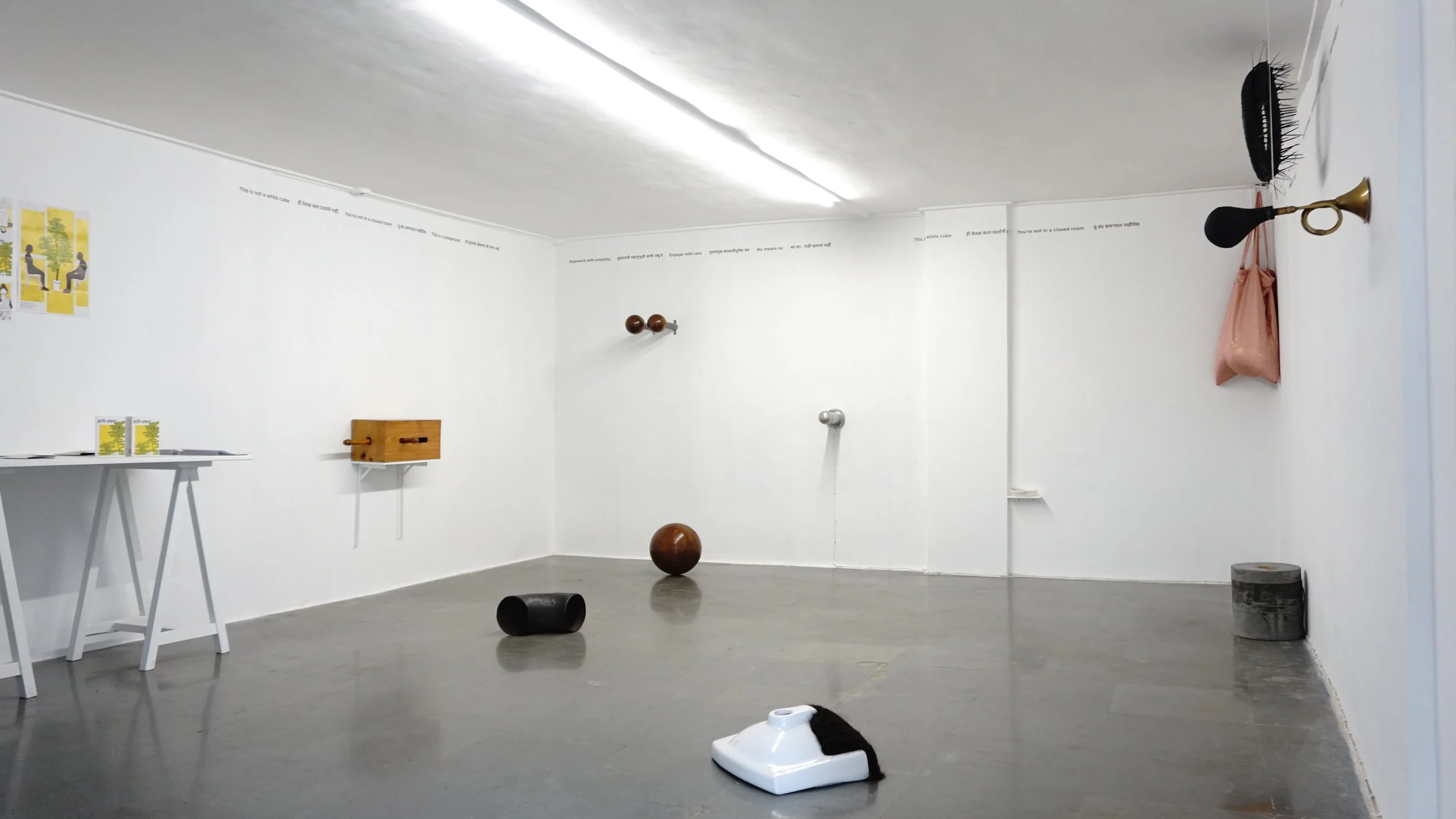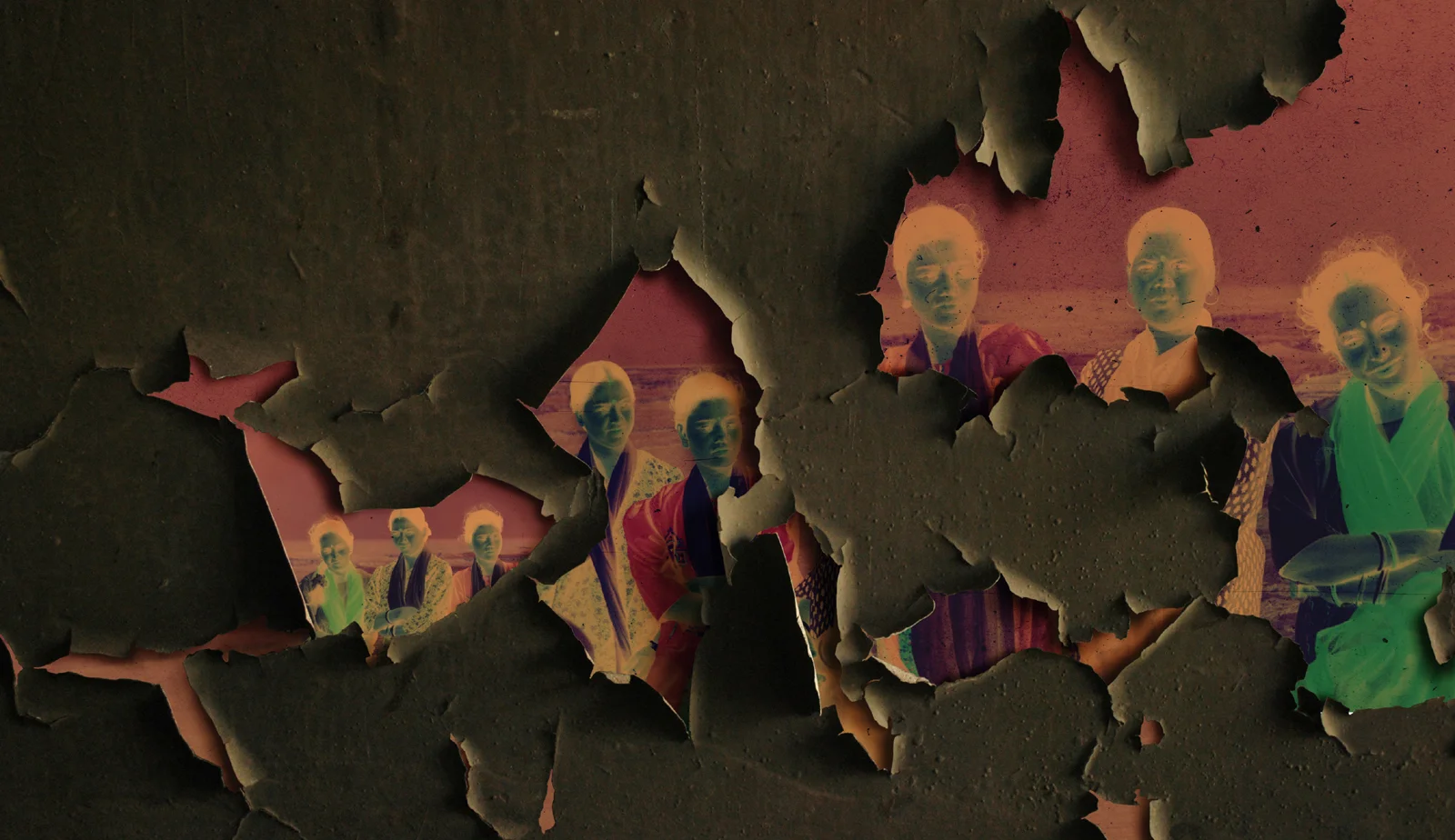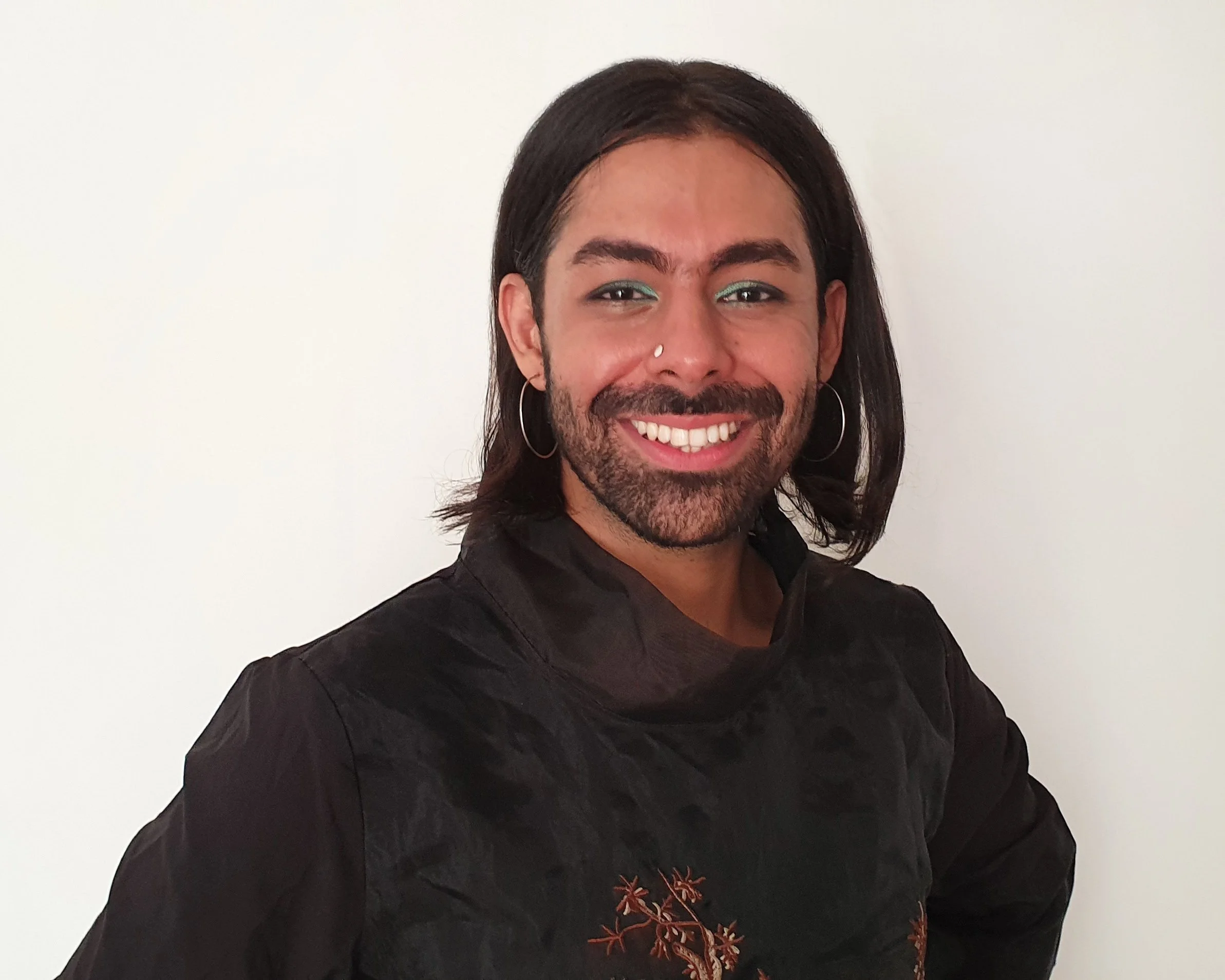Mumbai Art Room 2018: Shaunak Mahbubani
Shaunak Mahbubani is the 2018 recipient of the Mumbai Art Room open call for curators. His exhibition entitled Fondle / चिकट (on view till November 15, 2018) is a playful look at a serious issue that has been making headlines for the past year.
The past year has seen a wave of strength and courage from women across the world calling out their sexual assailants and demanding justice with the hashtag #Metoo, as the movement has been called. The first wave of sent shockwaves, with men realizing, often for the first time, that almost all women in their circles are survivors of sexual harassment and assault. The second wave in India, currently ongoing, has seen survivors become bolder and demand direct accountability from perpetrators, leading some men to exclaim on Twitter that it's too dangerous to even interact with a woman in this climate for fear of being called out.
What does this moment say about our interactions with other people? Have we been so blinded by our own self-interests that we can't or don't want to understand what the desires of the person before us? How do we move towards an understanding of interaction that places mutual respect at the forefront? Can we tackle these complex questions from a behavioural view instead of an academic one?
We're lucky to live in a time when the space of the art exhibition can be expanded into a space of experimentation, grappling with the questions of our times. In too many instances, however, the spaces that hold exhibitions in India intimidate sections of society that also need to be part of this conversation. With the support of the Inlaks Foundation, artist Murari Jha and I were fortunate to be able to perform our experiment 'Fondle / चिकट' at the Mumbai Art Room, one of the few private exhibition spaces in the country that has the potential to invite large strata of people through its street-accessible doors. We made it a point to include the languages of Marathi and Hindi, welcoming people who are excluded from English speaking spaces. The Marathi version of the title borrows from Chiktya, a term used in street whisper-networks to indicate a pervert or molester.
Art also infuses us with the ability to look at tough questions from multiple ways and in order to explore these questions, many of which confront taboos, we choose to frame our space as a playground, inviting viewers to touch and play with the works on display - but with empathy and care.
"This is not a white cube / हीं केवळ कला प्रदर्शनी नाहीं.
You are not in a closed room / तू बंद कमऱ्यात नाहींयेस.
This is a playground / हीं मुक्तपणे खेळण्यां ची जागा आहे.
Approach with empathy / तुझ्यातली सहानुभूती जागी असू दे.
Engage with care / गुंतवणूक काळजीपूर्वक कर.
No means no / बरं का.. नाहीं म्हणजे नाहीं."
Within this playground, we encounter several of Murari Jha's creatures. Inspired by both Dada readymades and Surrealist erotic objects, these sculptural forms cheekily combine allusions to the body's erogenous zones with everyday materialities of the South-Asian region. Playing with position, scale, weight, material, movement and other interventions, Jha imbibes into each of his friendly creatures a set of preferences of interaction, often hidden and imperceptible until a labour of understanding is undertaken. Some are keen to be touched, moved around, enjoying empathetic contact, but bruised by harsh handling, others are more shy and settle into corners, or harden themselves allowing visibility but deflecting fondlers. Within themselves, they present a plurality of modes of communicating consent. We also connected together illustrator Devarshi Gohil and youth empowerment NGO Anubhuti Trust to create a zine in Hindi looking at the myths of sex and the body, speaking about the importance of communication in any relationship.
A small incident on the opening evening of the exhibition demonstrated that empathy and respect are qualities that must come to the forefront of our conversations. The artist had decided to conduct a durational performance, in which he was lying in a corner, wrapped up in black cloth, completely frozen. As part of the performance, his body became an object that viewers encountered along with the other pieces in the space. An hour into his performance, a group of teen boys, passing by the venue, got intrigued and decided to make a visit. Unlike the regular art folks, who had multiple moments of internal questioning whether they could touch the artworks, the boys immediately started playing with the interactive creatures (as a quick aside - we observed that groups of girls who also came in to visit were not as entitled to immediately begin interacting with things around them). Soon the boys noticed the large black object in the corner and became very curious. They started prodding and poking, and on recognising the form of a human body, were suddenly enthralled in a mix of heroism and sadism. They proceeded to deploy increasingly violent ways to 'wake it up', from pinching to kicking to rolling heavy objects at him, stopping only when we physically intervened in the situation. A short dialog on respect with other beings and objects ensued, but we could see it needed a substantial engagement to make a lasting effect.
A playground is often not a safe space, but we must work towards making it one. One of the surest ways of moving towards a world where we see lower rates of violence is the cultivation of the recognition that those we meet in the playgrounds of the world, whether animate or inanimate, are multiplicious beings in their own right and not just playthings to perform our desires through. We're looking forward to a workshop taking place on the 27th of October, conducted by Anubhuti Trust founder Deepa Pawar, exploring these questions with teens. She will speak to her young participants about body dignity, body expression and also body responsibility. We truly believe that children with open minds and hearts of empathy will be one of our greatest allies to build the futures we want to see before us.
Shaunak Mahbubani is a nomadic curator, currently living in New Delhi, India. They primarily pursue projects under the series 'Allies for the Uncertain Futures’ initiated in 2016. This exhibition series is focused on exploring the possibilities of socio-political, ecological and techno-evolutionary futures through the lens of non-duality. They are interested in complicating boundaries between artwork and the viewer through the deployment of participatory devices, diffusions, and the use of non-white cube spaces. They were a part of the inaugural edition of CISA (Curatorial Intensive South Asia) initiated by Khoj International Artist's Association and Goethe Institut Delhi, and have curated exhibitions at Kalakar Theatre (New Delhi) supported by apexart (NYC), 1Shanthi Road (Bangalore), and TIFA Working Studios (Pune). Mahbubani is also currently Curator, Programming at The Gujral Foundation. See previous projects at: www.shaunak.co
Boomerangs by Shaunak Mahbubani
Image Credits and Video (1) by Priyank Gothwal








